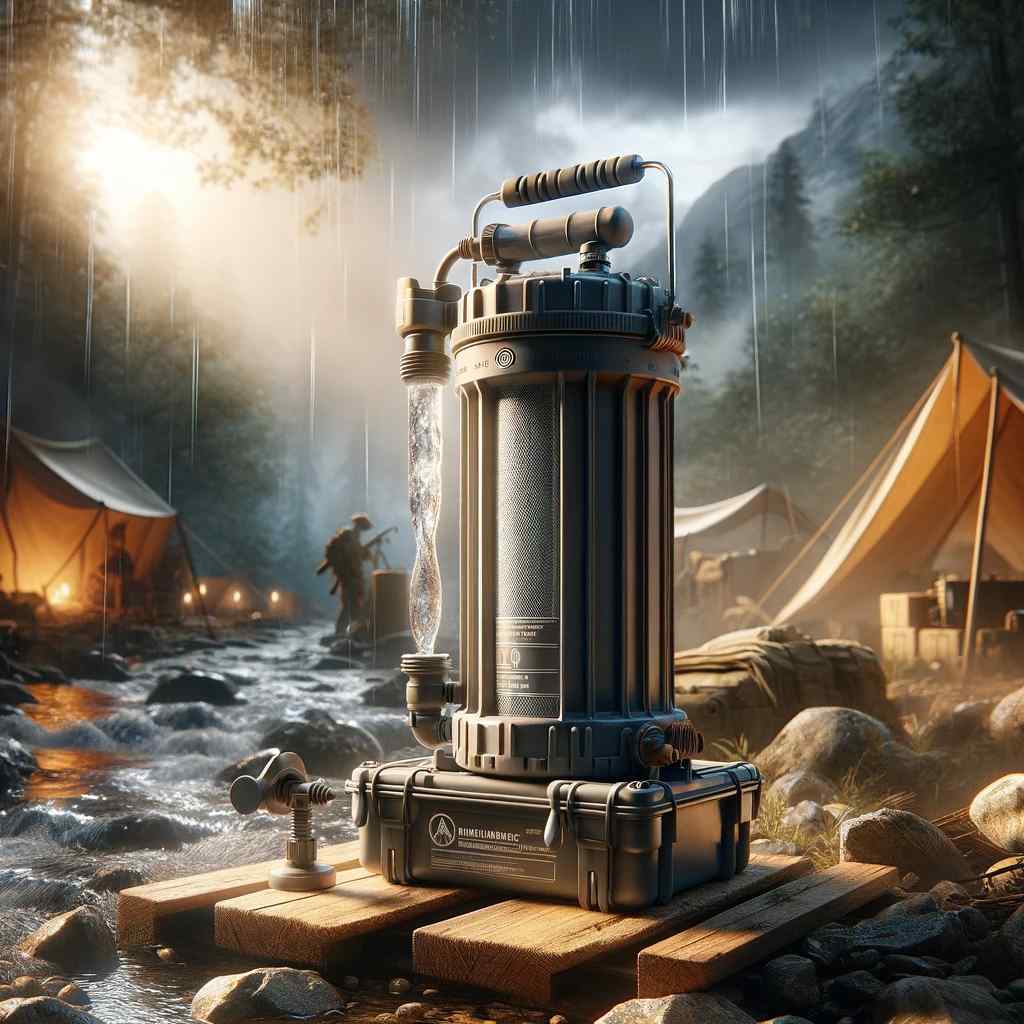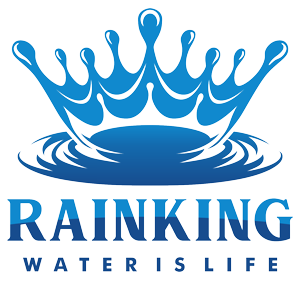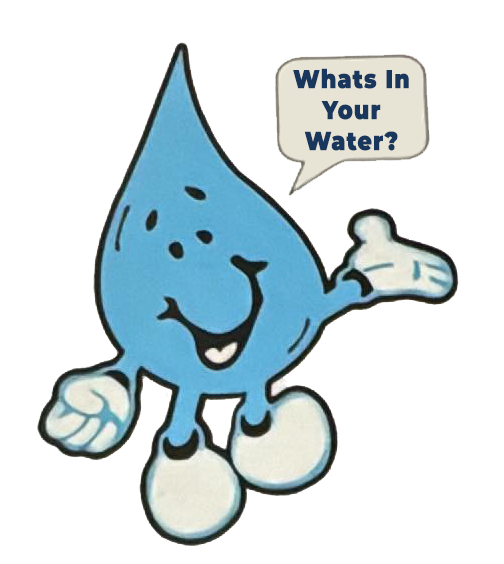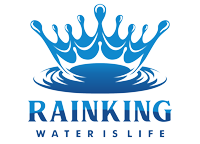In today’s uncertain world, it’s more important than ever to be prepared for emergencies. Whether it’s a natural disaster or a global crisis, having the necessary tools and supplies can make all the difference in keeping you and your loved ones safe. And when it comes to emergency preparedness, one tool that should be at the top of your list is a water filter. Water is something we often take for granted. It’s readily available at the turn of a faucet, and we rely on it for countless everyday tasks. But in an emergency situation, access to clean and safe drinking water can become scarce. That’s where water filters come into play – they are the unsung heroes that can mean the difference between life and death. But what exactly is the role of water filters in emergency preparedness? Well, imagine being in a situation where the usual sources of clean water are compromised – contaminated by pollutants or bacteria. Boiling water might not be an option, and bottled water may quickly run out. This is where a water filter becomes essential. It’s a powerful tool that can remove harmful contaminants and ensure that the water you consume is safe and free from impurities. Water filters come in various forms, from simple portable devices to larger systems that can purify water for an entire household. They use a range of technologies to filter out contaminants, including carbon filters, ceramic filters, and reverse osmosis. The exact type of filter you choose will depend on your needs and the level of emergency preparedness you want to achieve. In this blog post, we will delve into the role of water filters in emergency preparedness. We will explore different types of filters, their advantages and limitations, and provide helpful tips on how to choose the right one for your specific needs. Whether you’re a seasoned prepper or someone who simply wants to be ready for unexpected emergencies, this post will equip you with the knowledge and understanding you need to make informed decisions about your water filtration needs. So, let’s dive in and discover the essential role water filters play in emergency preparedness!
The Importance of Water Filters in Emergency Preparedness
When it comes to emergency preparedness, one of the most crucial tools you can have is a water filter. In times of crisis, access to clean and safe drinking water can become limited or even non-existent. This is where water filters step in to ensure that you and your loved ones have a reliable source of clean water.
During emergencies, such as natural disasters or global crises, the usual sources of clean water can become contaminated with pollutants or bacteria. Boiling water may not be an option, and bottled water supplies may quickly run out. In these situations, a water filter becomes an essential tool for survival.
A water filter works by removing impurities and contaminants from the water, making it safe for consumption. It utilizes various filtering technologies to achieve this goal. Some common types of filters include carbon filters, ceramic filters, and reverse osmosis systems.

Understanding the Role of Water Filters in Ensuring Clean and Safe Drinking Water
The primary role of a water filter in emergency preparedness is to ensure that the drinking water you have access to is free from harmful contaminants. These contaminants can include bacteria, viruses, heavy metals, chemicals, and other pollutants that can pose serious health risks if consumed.
Water filters are designed to effectively remove these impurities through their filtering mechanisms. For example, carbon filters use activated carbon to trap contaminants as the water passes through. Ceramic filters utilize tiny pores that block larger particles while allowing clean water to flow through.
By using a reliable water filter during emergencies, you can significantly reduce the risk of consuming contaminated water and protect yourself from potential illnesses or diseases caused by unsafe drinking water.
The Potential Dangers of Contaminated Water During Emergencies
Drinking contaminated water during emergencies can have severe consequences for your health. Contaminants in water can lead to various illnesses, including gastrointestinal infections, diarrhea, vomiting, and even more serious conditions.
Waterborne diseases are a significant concern during emergency situations. Without access to clean water, the risk of contracting diseases such as cholera, typhoid fever, dysentery, and hepatitis increases significantly.
Children, the elderly, and individuals with weakened immune systems are particularly vulnerable to the effects of contaminated water. Therefore, having a reliable water filter is crucial for protecting the health and well-being of everyone in your household.
Types of Water Filters and Their Filtering Technologies
There are various types of water filters available on the market today. Each type utilizes different filtering technologies to remove contaminants from the water. Understanding these different types can help you choose the right filter for your emergency preparedness needs.
1. Carbon Filters: These filters use activated carbon to absorb impurities like chlorine, pesticides, herbicides, and organic compounds. They are effective at improving taste and odor as well.
2. Ceramic Filters: Ceramic filters have small pores that block particles larger than their pore size while allowing clean water to pass through. They can effectively remove bacteria and protozoa from the water.
3. Reverse Osmosis Systems: Reverse osmosis is a filtration process that uses a semi-permeable membrane to remove ions, molecules, and larger particles from drinking water. It is highly effective at removing contaminants but may require additional equipment for optimal performance.
Portable Water Filters: Compact Solutions for Emergency Situations
In emergency situations where mobility is essential, portable water filters offer a convenient solution. These compact devices are designed to be lightweight and easy to carry, making them ideal for situations where you need to move quickly or have limited space.
Portable water filters come in various forms, including straw filters, bottle filters, and pump filters. They are designed to remove contaminants from water on-the-go, allowing you to drink safely from natural water sources such as rivers or lakes.
These filters are often equipped with advanced filtering technologies that can effectively remove bacteria, protozoa, and other harmful substances. They provide a reliable source of clean drinking water when access to treated water is not available.
Whole House Water Filtration Systems: Ensuring Clean Water for the Entire Household
In addition to portable filters, whole house water filtration systems are another option for emergency preparedness. These systems are installed at the point of entry of your home’s water supply and filter all the water that enters your house.
A whole house filtration system ensures that every tap in your home delivers clean and safe drinking water. It removes contaminants such as chlorine, sediment, heavy metals, and other impurities that may be present in the municipal water supply or well water.
While whole house filtration systems require professional installation and maintenance, they provide comprehensive protection for you and your family during emergencies. Having access to clean water throughout your home can make a significant difference in maintaining hygiene and overall well-being. Here at Rainking Systems we can help set one up for you!
Factors to Consider When Choosing a Water Filter for Emergency Preparedness
When selecting a water filter for emergency preparedness, there are several factors to consider:
1. Filtering Capacity: Determine how much filtered water you will need during an emergency situation. Consider the number of people in your household and their daily consumption requirements.
2. Filtering Technology: Research different filtering technologies available and choose one that suits your needs best. Consider factors such as the types of contaminants you are likely to encounter and the filter’s effectiveness in removing them.
3. Portability: If mobility is a concern, opt for a portable water filter that is lightweight and easy to carry. Ensure that it meets your specific requirements for on-the-go filtration.
4. Longevity and Maintenance: Consider the lifespan of the filter cartridge and any maintenance requirements. Some filters may require regular cleaning or replacement of parts, so factor in these considerations when making your decision.
Maintenance and Care Tips for Water Filters in Emergency Situations
To ensure that your water filter remains effective during emergencies, proper maintenance and care are essential. Here are some tips to keep in mind:
1. Follow Manufacturer’s Instructions: Read and follow the manufacturer’s instructions for installation, usage, and maintenance of your specific water filter model.
2. Regularly Clean or Replace Filter Cartridges: Depending on the type of filter you have, clean or replace the filter cartridges as recommended by the manufacturer. This will ensure optimal performance and prevent clogging.
3. Store Replacement Parts: Keep spare filter cartridges or other necessary replacement parts on hand in case they are needed during an emergency situation.
4. Regularly Inspect for Damage: Check your water filter regularly for any signs of damage or wear. Replace any damaged components promptly to maintain its effectiveness.
Long-Term Emergency Preparedness: Stocking Up on Water Filters and Replacement Parts
In long-term emergency preparedness planning, it is wise to stock up on water filters and replacement parts. Having extra filters ensures that you have a backup supply in case one becomes damaged or worn out during an extended crisis.
Consider storing these filters in a cool, dry place away from direct sunlight. Make sure to rotate your stock periodically to ensure that the filters remain in good condition and are ready for use when needed.
Conclusion: The Crucial Role of Water Filters in Emergency Preparedness
In conclusion, water filters play a crucial role in emergency preparedness by ensuring access to clean and safe drinking water. During emergencies, when usual sources of clean water may be compromised, a water filter becomes an essential tool for survival.
Water filters remove harmful contaminants and provide peace of mind knowing that the water you consume is free from impurities. Whether you choose a portable filter for on-the-go use or a whole-house filtration system for comprehensive protection, having a reliable water filter is essential for safeguarding your health and well-being during emergencies.
By considering factors such as filtering capacity, technology, portability, and maintenance requirements, you can choose the right water filter for your specific needs. Regular maintenance and care will ensure that your filter remains effective when it matters most.
Remember to stock up on extra filters and replacement parts for long-term emergency preparedness planning. Being prepared with the necessary tools, such as water filters, can make all the difference in keeping yourself and your loved ones safe during uncertain times.




